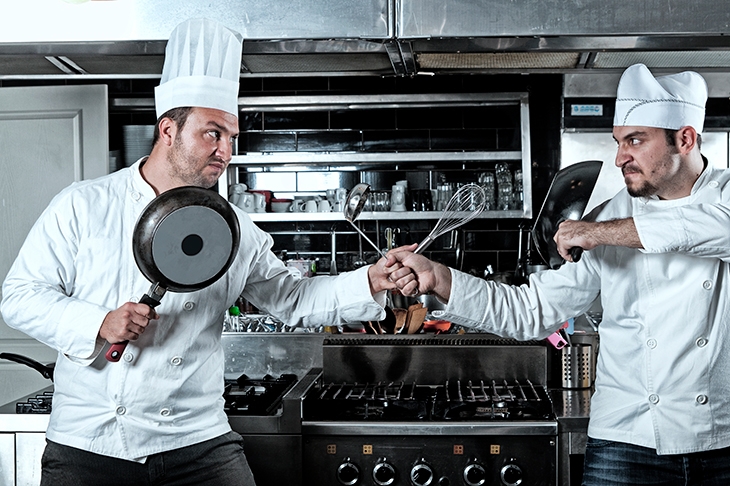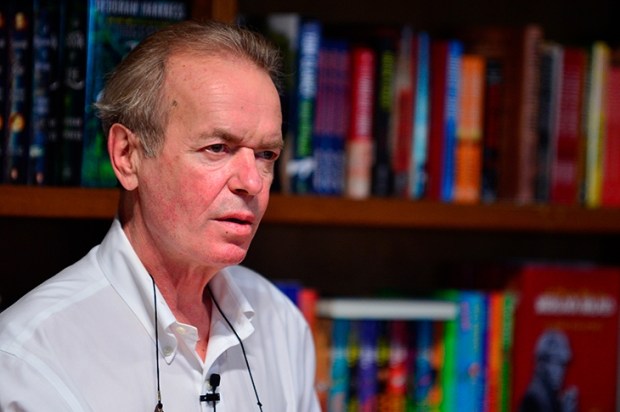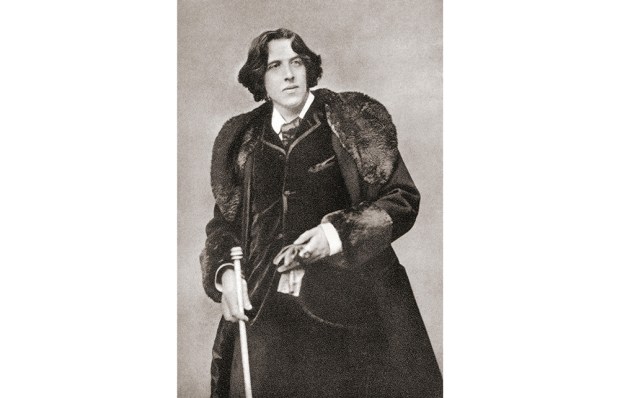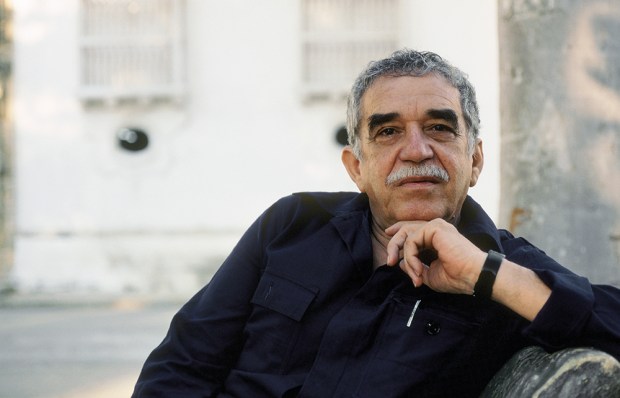You can’t say he didn’t warn us. In the final sentence of his previous book, Heat, a joyously gluttonous exploration of Italian gastronomy, Bill Buford announced that he would be crossing the Alps: ‘I have to go to France.’ And here he is, in Dirt, another rollicking, food-stuffed entertainment, determined to unearth, as it were, the secrets of haute cuisine. Lyon, being the gastronomic capital of France, is where he decides to dig in, having uprooted his family (wife, twin toddlers) to facilitate his investigations. Gourmets and gourmands will savour this account of his five-year adventure — and so will students of the author’s curious, compelling character.
Famous in literary circles for having revived Granta in the 1980s, and for giving ‘dirty realism’ its name, Buford was for seven years, starting in 1995, the fiction editor of the New Yorker — but literature, it’s now abundantly clear, was just one facet of his career. He has an impressive track record as a participatory journalist in the vein of the late George Plimpton (also famous in literary circles, also a magazine editor, at the Paris Review, which he co-founded). Plimpton plunged serially into professional sports — baseball, American football, boxing — and wrote droll, bestselling accounts of his bruising, exhilarating experiences. Buford’s first book, published 30 years ago, was Among the Thugs, the story of his willing immersion in the culture of English football hooliganism. In 2006 he published Heat, which featured his gruelling stint as a ‘slave’ in the kitchen of Babbo, a three-star Italian restaurant in New York. Dirt is essentially a sequel — different language, different cuisine, different cast of characters, same hideous working conditions, same utter absorption in the making of food.
Once described by Robert McCrum as a ‘professional naughty boy’, Buford is powerfully drawn to bad behaviour — hence his obsession with Mario Batali, the manically appetitive owner of Babbo and hero of Heat, whose career as a celebrity chef was effectively ended by accusations of sexual harassment levelled a decade after the book’s publication. (Batali’s name is never mentioned in the sequel.) The heroes in the new book are several French chefs with strong ties to Lyon, among them Daniel Boulud and Paul Bocuse. It’s in America, however, that Buford’s adventure begins, in the kitchen at Citronelle in Washington, DC, where the chef, Michel Richard, utters the fateful words: ‘Lyon is perfect.’
Lyon is of course not perfect — ‘it was actually very rough and entirely unwelcoming’ — but overcoming stiff odds is a recurring motif in Buford’s life and work. His punishing six months as an apprentice in the kitchen of Mathieu Viannay’s two-star La Mère Brazier is the core of Dirt. Buford is in his forties, he doesn’t speak French, he’s slow moving and not particularly dexterous (‘I don’t have fingers. I have stumps’) — what kind of stagiaire is that? He persists, he prevails: ‘Though I can’t condone the French apprentice system — the unregulated bullying and humiliation — I had to concede that I had never learned so much. It made me into a cook.’ He is repeatedly bullied and humiliated, but it’s the only woman in the kitchen who suffers the most brutal attacks, including a thunderous barrage of pots hurled in her direction. Out of this place where rage and resentment simmer and spit come dishes made with a passion more like love.
The focus of Dirt is so food-centric that you almost forget the author has mastered two disciplines: writing as well as cooking. A set piece about the slaughter of a pig begins with Buford snout to snout with the doomed animal and ends with boudin noir (‘like a rich red pudding, spoilingly fresh, complexly fragrant of our morning pig’) — a small masterpiece of terror and delight. Elsewhere he describes strangers leaving a boulangerie carrying baguettes, all with the same look, ‘suspended between appetite and the prospect of an appetite satisfied’.
A recurring theme is the possible Italian roots of classic French cooking, a hypothesis that sparks apoplectic denial in the French. Buford investigates haphazardly, his findings inconclusive. Along the way he pauses to explore the origins of French ragoût and Italian ragù — I won’t give away the punchline, but I’ll admit I was surprised. His observations on French national character inevitably depend on generalisation, but they strike me as exactly right. About an injunction repeated in an old cookbook, ‘selon les règles’ (according to the rules), he remarks, ‘not many phrases are more French’.
Buford comes to love the French, the Lyonnais in particular, and the feeling seems mutual. He is, to borrow his description of some of his culinary heroes, a ‘charismatic fanatic’. His devotion to making food, and to learning about food, is contagious. Early on in Among the Thugs he explained his motivation with engaging modesty: ‘I wanted to find out what I didn’t know.’ That openness to experience, to adventure, has remained with him. He’s the better for it, and so are we.
Got something to add? Join the discussion and comment below.
Get 10 issues for just $10
Subscribe to The Spectator Australia today for the next 10 magazine issues, plus full online access, for just $10.
You might disagree with half of it, but you’ll enjoy reading all of it. Try your first month for free, then just $2 a week for the remainder of your first year.














Comments
Don't miss out
Join the conversation with other Spectator Australia readers. Subscribe to leave a comment.
SUBSCRIBEAlready a subscriber? Log in